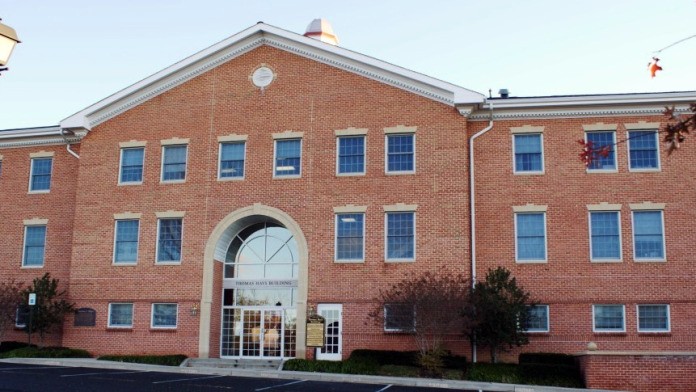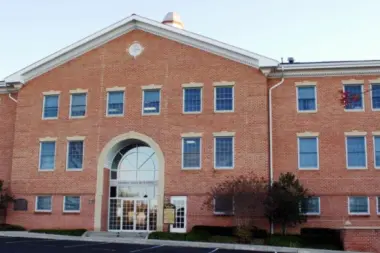At Harford County, you can find a friendly greeting and staff full of energy and purpose to help you. I am always pleased with the service I get. Thank you all!!!
About Harford County Health Department
Based on the severity of the client’s illness, one could be eligible for the intensive outpatient program which includes at least nine hours of treatment per week. Psychopharmacological evaluation and management along with screening and assessment are all part of outpatient treatment. They also provide peer support services, family education and support and case management.
Psychiatric and substance use disorder conditions are treated with medication management services. They offer group, family and individual counseling. They provide medication assisted treatment (MAT) options. Program requirements can be discussed during admissions if you’re interested. In order to promote treatment retention and long term recovery, their peer recovery specialists offer various engagement and education initiatives, continuing care services and support services.
They provide and administer Vivitrol, a drug used to treat opioid and alcohol dependence, as part of their Vivitrol Treatment Program. They are the approved treatment coordinator for the county. By determining treatment needs and arranging for such services, they can help the community’s residents.
If a client needs residentially based medically monitored detoxification or methadone maintenance, they may be able to fund and arrange for this service, even if the client would prefer to receive services from another organization. In partnership with the Harford County Sheriff’s Office, the Department of Social Services, the Department of Juvenile Justice, the Harford County District and Circuit Court and the county’s public and private schools, they provide the overdose prevention and response program and specialized substance use disorder programs.
Latest Reviews
Rehab Score
Gallery


Other Forms of Payment
Medicaid is a state based program that helps lower-income individuals and families pay for healthcare. Medicaid covers addiction treatment so those enrolled can use their coverage to pay for rehab. When a program accepts Medicaid the client often pays very little or nothing out of their own pocket.
Self-pay involves paying for treatment out of your own pocket. You can use savings or credit, get a personal loan, or receive help from family and friends to fund your treatment. If you don't have insurance or your insurance plan doesn't cover a specific program, self-pay can help ensure you still get the care you need.
Financial aid can take many forms. Centers may have grants or scholarships available to clients who meet eligibility requirements. Programs that receive SAMHSA grants may have financial aid available for those who need treatment as well. Grants and scholarships can help you pai for treatment without having to repay.
Addiction Treatments
Levels of Care
Outpatient Programs (OP) are for those seeking mental rehab or drug rehab, but who also stay at home every night. The main difference between outpatient treatment (OP) and intensive outpatient treatment (IOP) lies in the amount of hours the patient spends at the facility. Most of the time an outpatient program is designed for someone who has completed an inpatient stay and is looking to continue their growth in recovery. Outpatient is not meant to be the starting point, it is commonly referred to as aftercare.
Drug and alcohol addiction often takes a heavy toll on one's body. Over time, a physical dependence can develop, meaning the body physiologically needs the substance to function. Detox is the process of removing drugs and/or alcohol from the body, a process that can be lethal if mismanaged. Medical detox is done by licensed medical professionals who monitor vital signs and keep you safe, healthy, and as comfortable as possible as you go through detox and withdrawal.
Intensive Outpatient Programs (IOP) are for those who want or need a very structured treatment program but who also wish to live at home and continue with certain responsibilities (such as work or school). IOP substance abuse treatment programs vary in duration and intensity, and certain outpatient rehab centers will offer individualized treatment programs.
Continuing Care is a free service provided to clients who have successfully been discharged from Outpatient services. Continuing Care is a peer driven support service in which former clients are provided with telephone based check-ins for up to one year post discharge. Continuing Care services are designed to support an individual in recovery and to provide a bridge in the event issues or concerns arise.
Treatments
The goal of treatment for alcoholism is abstinence. Those with poor social support, poor motivation, or psychiatric disorders tend to relapse within a few years of treatment. For these people, success is measured by longer periods of abstinence, reduced use of alcohol, better health, and improved social functioning. Recovery and Maintenance are usually based on 12 step programs and AA meetings.
Once a person has become addicted to a substance, drug rehab in Maryland is often necessary to overcome that addiction. These programs provide the tools individuals need to manage the physical, mental, and emotional issues involved and begin a successful recovery journey.
A combined mental health and substance abuse rehab has the staff and resources available to handle individuals with both mental health and substance abuse issues. It can be challenging to determine where a specific symptom stems from (a mental health issue or an issue related to substance abuse), so mental health and substance abuse professionals are helpful in detangling symptoms and keeping treatment on track.
Programs
Adult rehab programs include therapies tailored to each client's specific needs, goals, and recovery progress. They are tailored to the specific challenges adult clients may face, including family and work pressures and commitments. From inpatient and residential treatment to various levels of outpatient services, there are many options available. Some facilities also help adults work through co-occurring conditions, like anxiety, that can accompany addiction.
Young adulthood can be an exciting, yet difficult, time of transition. Individuals in their late teens to mid-20s face unique stressors related to school, jobs, families, and social circles, which can lead to a rise in substance use. Rehab centers with dedicated young adult programs will include activities and amenities that cater to this age group, with an emphasis on specialized counseling, peer socialization, and ongoing aftercare.
Clinical Services
Family therapy/services help family members improve communication and resolve conflicts. Family therapy/services include the family members or loved ones for which the client consented. Family sessions can teach skills to deepen family connections and assist the family with getting through stressful times. Family members are encouraged to participate in educational services within the Division and the community.
Group is modality in which a counselor works with several people at the same time. Group is utilized as a modality of change by developing, exploring and examining interpersonal relationships within the group. Clients may find relief when hearing others discuss what they are going through and realize they are not alone. Clients may see how other people tackle problems and have made positive changes; clients may discover a whole range of strategies for facing their own concerns, Group sessions encourage clients to put their own problems in perspective.
Individual (sometimes called "therapy", "psychotherapy" or "counseling") is a process in which clients work one-on-one with a trained counselor, in a safe, caring, and confidential environment, to explore their feelings, beliefs, or behaviors, to work through challenging or influential memories, to identity aspects of their lives that they would like to change, to better understand themselves and others, to set personal goals, and to work toward desired change. individual sessions generally run about 50-60.
Trauma informed care is a realization of the impact of trauma. Trauma informed care is the utilization of appropriate evidenced based, trauma based treatment approaches. Trauma informed care is the ability to recognize the signs and symptoms of trauma. Trauma informed care incorporates trauma based best practices into policies and procedures. Trauma informed care endeavors to prevent re-traumatization.
Accreditations

The Commission on Accreditation of Rehabilitation Facilities (CARF) is a non-profit organization that specifically accredits rehab organizations. Founded in 1966, CARF's, mission is to help service providers like rehab facilities maintain high standards of care.
CARF Accreditation: Yes
Contact Information
120 South Hays street
Bel Air, MD 21014